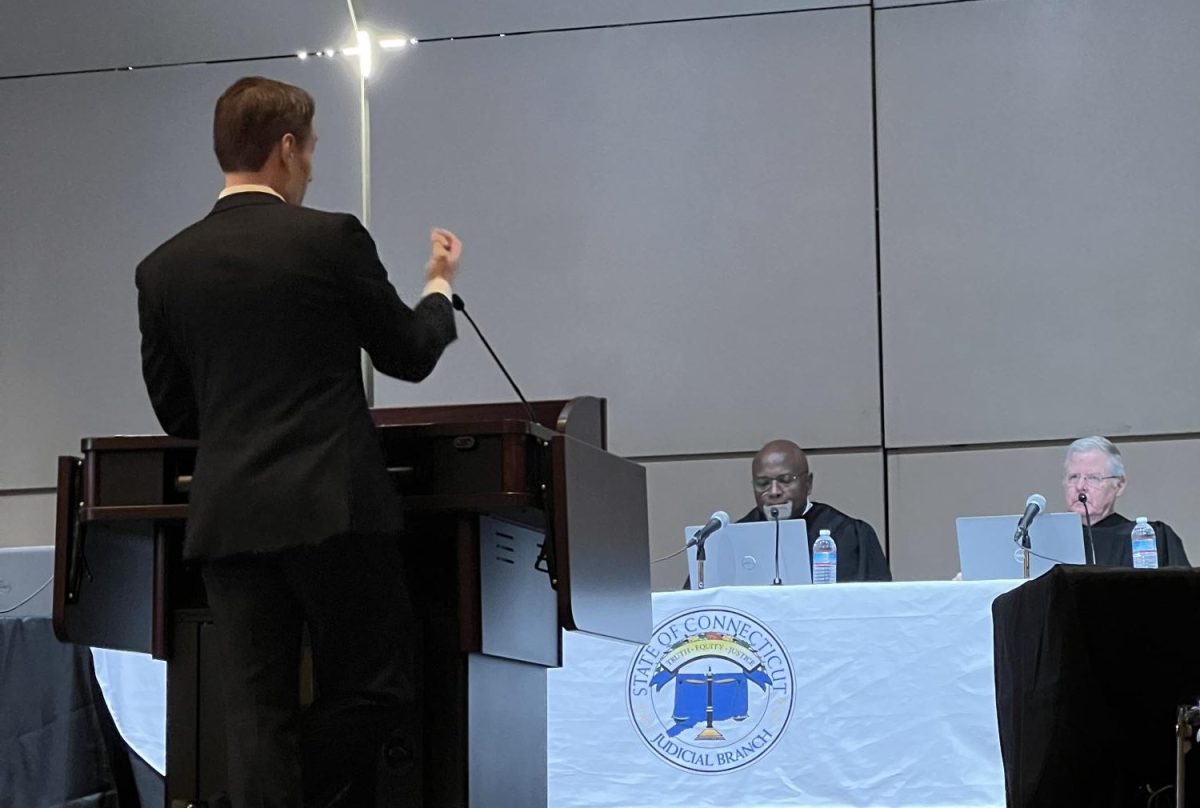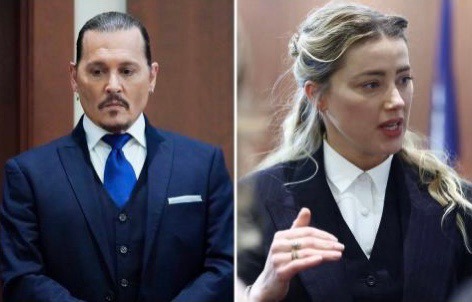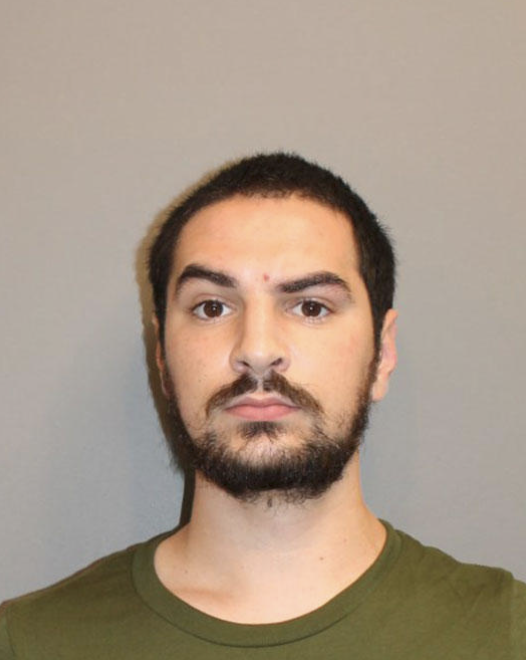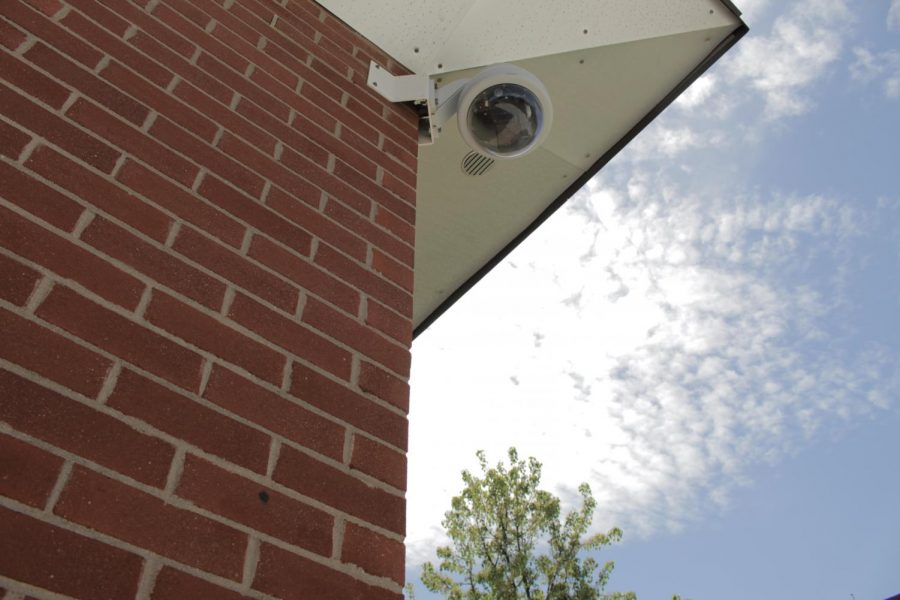Central Connecticut State University hosted the Connecticut State Supreme Court in Torp Theatre at Lawrence J. Davidson Hall on Thursday, Oct. 19.
Chief Justice Richard A. Robinson, accompanied by justices Andrew J. McDonald, Gregory D’Auria, Raheem L. Mullins, Steven D. Ecker, Joan K. Alexander and Nora Dannehy, heard two cases. The event was organized by the Criminology department and Dr. Beth Merenstein.
The first case, State of Connecticut v. Lawrence Lee Henderson, opened with the defense attorney arguing for the modification of a previous case, State v. Arroyo. The modification would allow for judicial review of legally inconsistent verdicts.
The prosecution’s rebuttal revolved around the subjectivity of a jury, stating that any singular jury could make rulings with legal inconsistencies and overcharge a defendant.
After the court took a recess, the defense attorney Pamela Nagy gave her take on the potential verdict.
“They’re testifying on behalf of the state,” Nagy said. “It’s no benefit to them [to overcharge.]”
The second case, Vincent G. Benvenuto v. Kevin Brookman, is rooted in a series of confrontations and disputes involving Benvenuto and Brookman, both of whom are well-known figures within the community.
Benvenuto, a local police officer and community activist, alleges that Kevin Brookman, a prominent local blogger, engaged in a campaign of online harassment, defamation, and the dissemination of false information about him.
Benvenuto’s legal team and his attorney Gregory Jones, argued that Brookman’s actions had caused irreparable harm to their client’s reputation and livelihood. They presented a series of online posts, comments, and articles published by Brookman, which they claimed were false, malicious, and intended to tarnish Benvenuto’s image.
Conversely, Brookman’s defense attorney, Mario Cerame, argued that his client had merely exercised his First Amendment rights to free speech and expression, presenting his online posts and articles as protected forms of opinion and commentary.
They contended that Benvenuto’s claims lacked merit and that his lawsuit was an attempt to stifle the free exchange of ideas and opinions in the public domain.
Central to the case was the question of whether Brookman’s online activities had crossed the line from legitimate critique and commentary into harassment and defamation.
The Vincent G. Benvenuto v. Kevin Brookman case has sparked debates not only about the balance between free speech and reputation but also about the responsibility of individuals when they express their opinions online.






